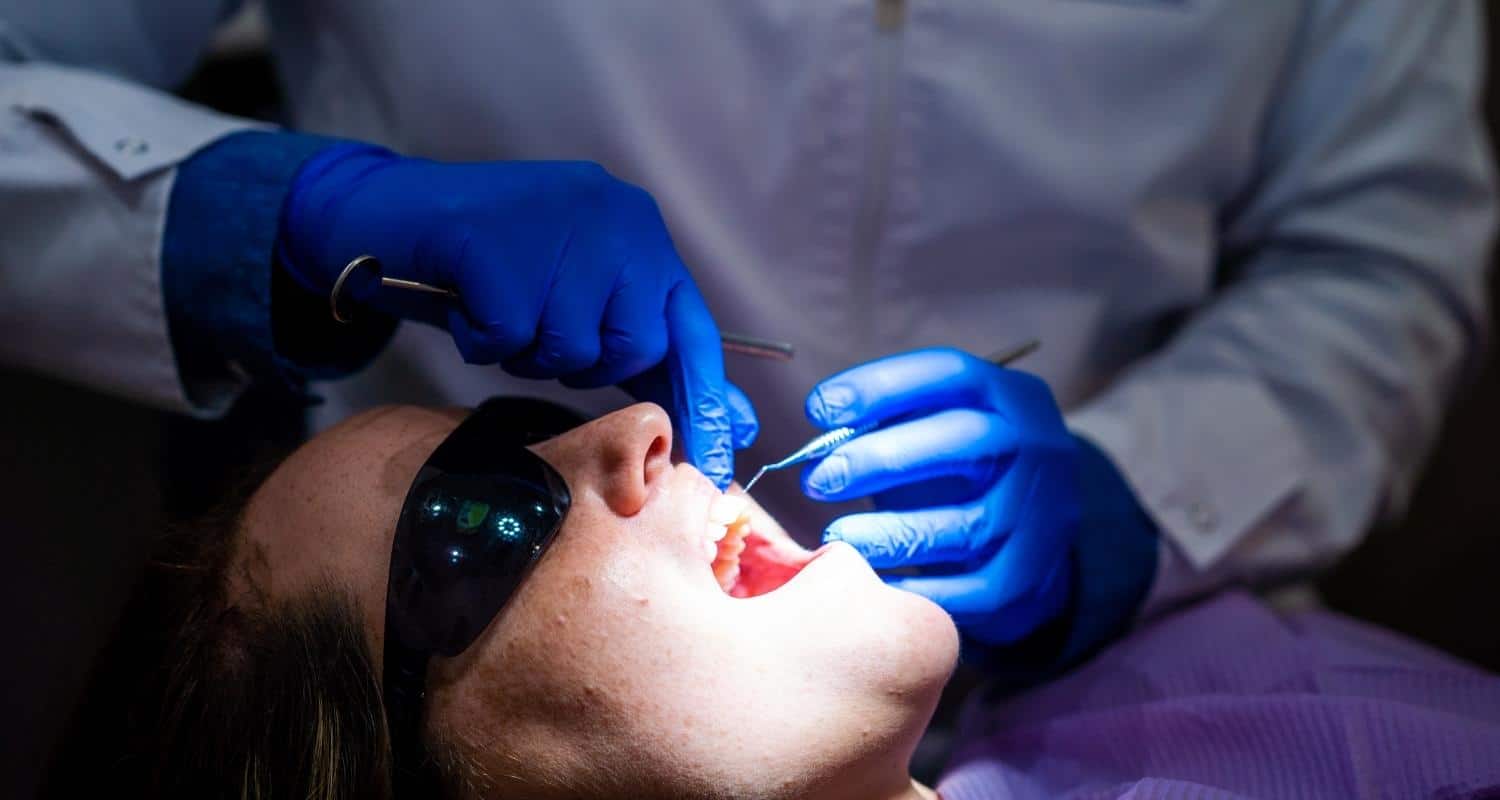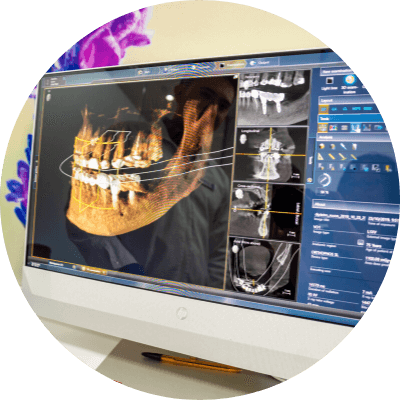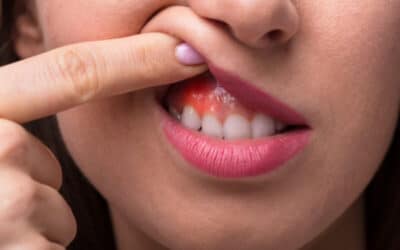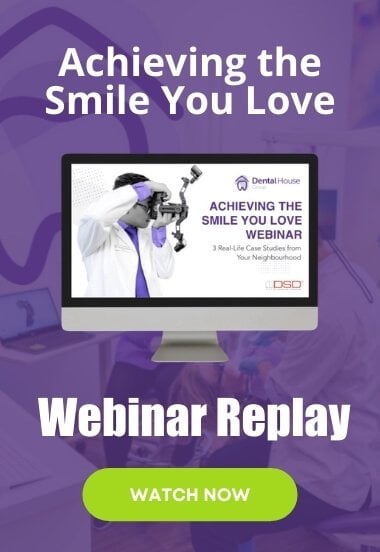Think You’re Really Lucky? Then You Probably Have Gum Disease
Think You’re Really Lucky? Then You Probably Have Gum Disease

How lucky it is to have gum disease? Very, it seems.
According to dental scientists (truly(!), keep reading, this is all from a 2022 periodontology symposium) it’s an affliction of the blessed, which makes it as admirably egalitarian as it is potentially confusing.
Maybe the lucky part is it’s lucky to have teeth.
For now, anyway.
How much luckier periodontitis sufferers feel in comparison to those who don’t have inflamed and bleeding gums, teeth that move and general oral discomfort, is hard to know.
Luck, it’s said, is probability taken personally.
Were chance the dominating factor in any outcome, then surely doubt must be cast on the authenticity of any achievement or conclusion. Or is it the very random kismet kiss at that very moment in time that deems someone a winner? Winning anything – from unknowingly avoiding an accident, being in the right place at the right time, having the winning ticket in a mega-lottery … or just feeling lucky.
Holding belief in fluky fortune separates skill from the contributors to success. It suggests a paradigm of self-defeating empowerment that goes ‘round and ‘round like the exact moment the letter ‘G’ is suddenly seen as a spinning arrow.
F. Scott Fitzgerald maintained that the test of first-rate intelligence is the ability to hold two opposing ideas at the same time and retaining the ability to function. Essentially rubbing your stomach and patting your head.
Has anyone made that into a tax-free religion yet?
By necessity, what constitutes a ‘religion’ is completely imprecise because of the indiscriminate and extensive intangibles of the very matter itself. Amen.
It’s generally accepted that religion involves the acknowledgment of some higher being or divine power and a set of practices and beliefs by which the practical, moral and order of devotees’ lives is from that stance of group-agreed parameters.
Legally it’s pretty loose as well. Scientology has Joseph Smith sticking his face in a hat. Mormonism has a spaced out L. Ron Hubbard relaying stuff.
And it’s how the gloriously addled Church of the Flying Spaghetti Monster was formed; Pastafarianism is almost reaching its second decade.
For its founder Oregonian Bobby Henderson, the traditions of the FSM Church just happen. Like cooked spaghetti thrown at a tiled wall, it either sticks or it doesn’t.
Just like a lucky or an unlucky person and dental plaque, it seems.
So if anything at all can be relied upon from a man whose title choices Trimalchio in West Egg and The High-Bouncing Lover luckily lost out to The Great Gatsby, then Pastafarianism is indeed the creation of a first-rate mind.
The emergence of Pastafarianism has contrasting explanations.
After a bout of heavy drinking, an invisible monster comprising two vesicular eyes atop a tangle of spaghetti enroping one meatball either side, created the universe. His followers – mainly pirates – worshipped in secret for hundreds of years until recent times when the Flying Spaghetti Monster became better known.
Touched by His Noodly Appendage, is much adored and beloved by Pastafarians and celebrated by others for its Michelangeloesque nod to the Sistine Chapel’s fresco Creation of Adam.
Then there’s the other account of the founding of the Church of FSM.

In 2005, Oregon State University physics graduate Bobby Henderson wrote to the Kansas Board of Education protesting the proposal for secondary schools to teach evolution alongside intelligent design: the pseudoscience decreeing that Earth and all of which it consists, is so complex and intricate that it cannot possibly be reasoned by science. Therefore, only a nebulous, although unquestionably supernatural, entity could have designed it all.
Henderson proffered that the syllogism in the grass evidence for intelligent design was a that equally applied to a universe created by a flying spaghetti monster.
“I fully expect, then,” he wrote, “that this FSM theory will be admitted into accepted science with a minimum of apparently unnecessary bureaucratic nonsense, including the peer-review process.”
Eliciting no response, he posted his letter on the internet and like all religions, a phenomenon materialised, born and formed.
Lucky, eh?
Those who believe in luck, according to a French study revealed at the 2022 at EuroPerio10 are more likely to have severe gum disease because of their predominant belief that chance determines what happens in life. than people for whom the responsibility lays with their own actions.
That the findings were presented at the world’s leading congress in periodontology and implant dentistry it’s unlikely that serendipity rather than science is responsible for that outcome.
Under the session topic of Prevention and Risk Factor Control in Periodontology, study author Dr Sebastien Jungo of the University of Paris, presented the examined interwoven relationships between psychological and socioeconomic influences, beliefs and oral health.
In order to suitably define belief systems, patients participating in the study were categorised as having either an external or internal locus of control.
The outcomes of life events due to their own actions indicated internal checks and personal authority. The extent to which study volunteers believed they had little power or no control over contributing factors designated an external locus of control.
The gum disease study involved 79 subjects from the periodontal clinic at Bretonneau University Hospital. The average age was 46, with 66% being women.
Lifestyle and socioeconomic data was collected, with participants completing questionnaires regarding stress levels and emotional states. Along with their existing gum disease, the degree of dental plaque and number of teeth were recorded.
Of the group, twenty had external locus of control and 59 internal. The average negative or depressed mood score was twice as high for the externals.
Low education levels applied to 75% of the external locus group – showing an 25% increase on differing group.
You can see where this scoreboard is going, in terms of oral health.
Average tooth loss: 3 vs. 1 – internals advantage. Maximum attachment loss: 9.95mm vs. 8.38mm – internals to win…
For the purpose of the study, demonstrations and instructions on good oral hygiene habits and techniques were given, and a second examination scheduled for two weeks later.
That consultation assessed the severity in decline of their periodontitis. It compared variations between pocket depth, maximum attachment loss and whether gums bled on probing.
The multivariable analyses found that subscribing to external factors being in control objectively correlated with more tooth and attachment loss. The study found too, that commonly, these participants experienced life with a lower education and higher incidence of emotional health imbalances.
What emerged most unexpectedly from this study is that these external control, I-always-leave-it-up-to-the-universe patients need encouragement from their specialists and practitioners to realise periodontitis is manageable. That it with proper home oral care and professional treatment gum disease can be controlled.
How lucky is that?
Note: All content and media on the Sunbury Dental House website and social media channels are created and published online for informational purposes only. It is not intended to be a substitute for professional medical advice and should not be relied on as health or personal advice.
Services Mentioned
Related Articles
Some Sweet News For Diabetes Sufferers With Gum Disease
Diabetes type 2 is a scourge for sufferers and those with it know that well. Here is some sweet news for diabetes sufferers with gum disease. A new study performed at the University of Buffalo School of Dental Medicine made some helpful findings in this regard. The...
Can Gum Recession Be Fixed With Dental Bonding?
Gum Recession Fixes: Can gum recession be fixed with dental bonding? In some cases it can help and it is well worth a discussion with…
Bruxism In Children: Is It Influenced By Screen Time And Sugar?
Children gnashing & grinding their teeth asleep in bruxism – a scene from a horror movie. Overstimulation of sensitive minds…
Let The New Year Bring New Commitment To Your Oral Care
If you can be inspired to make one new year’s resolution this year let it be for your dental health. Let the New Year bring new commitment to your oral care in 2024 and beyond. This is no mere dentist’s selfish wish but a call for an understanding about just how...















